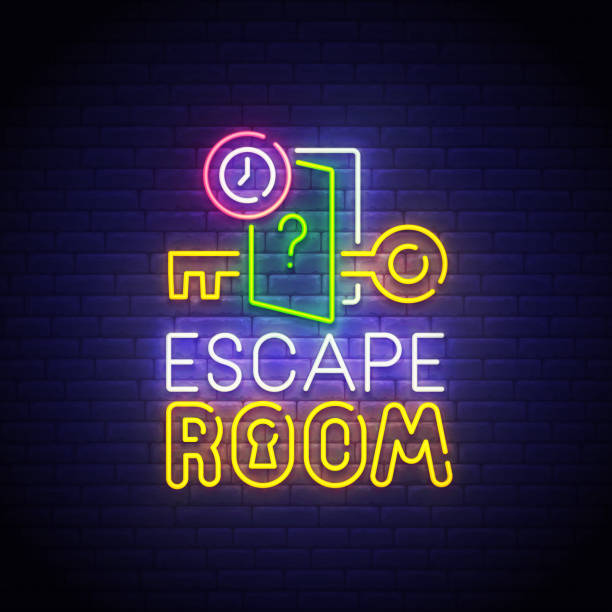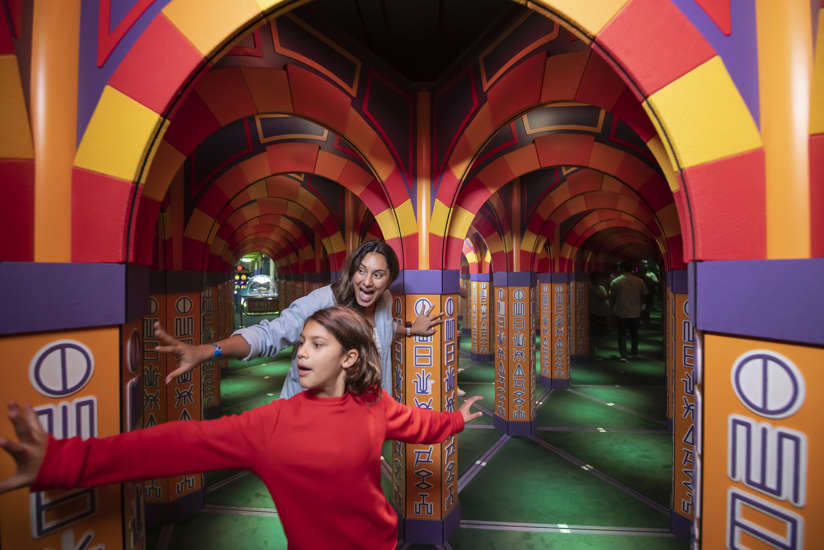Test Your Wits at the Escape Room Seattle WA: Fun for All Ages
Test Your Wits at the Escape Room Seattle WA: Fun for All Ages
Blog Article
Difficulty Your Mind With Our Intriguing Escape Room Puzzles and Clues
Embarking on a getaway room experience offers a complex experience that blends cognitive challenges with immersive narration. Each room, thoroughly crafted with unique styles, attracts participants right into a globe where logic, monitoring, and physical problems converge.
The Art of Challenge Layout
The art of challenge layout in escape rooms is a thorough and creative process that needs a deep understanding of both cognitive and psychological involvement. Crafting a successful challenge entails balancing complexity with solvability, making sure that participants remain challenged yet not bewildered. This balance is vital, as it fosters a feeling of achievement and advertises ongoing involvement.
Puzzle developers have to take into consideration various cognitive skills, such as pattern recognition, deductive reasoning, and spatial awareness. These aspects ought to be interwoven flawlessly within the story of the getaway area, boosting the immersive experience. Psychological involvement is similarly important; problems should evoke inquisitiveness, enjoyment, and occasional aggravation, motivating participants to be determined and inevitably succeed.
Attention to information is paramount. Every hint, prop, and mechanism needs to be diligently made and tested to make sure capability and coherence within the story. Designers frequently iterate on their developments, including responses from examination groups to refine difficulty degrees and eliminate ambiguities.

Kinds of Escape Room Challenges
Comprehending the complexities of challenge style naturally brings about an exploration of the varied kinds of challenges experienced in escape areas. These challenges can be generally classified right into physical puzzles, reasoning problems, and observational puzzles, each offering unique forms of involvement and cognitive excitement.
Physical problems need participants to connect with their atmosphere, frequently including jobs such as constructing items, adjusting systems, or revealing covert compartments. These obstacles engage responsive senses and spatial thinking, urging team effort and hands-on problem-solving.
Reasoning challenges, on the various other hand, need logical reasoning and pattern acknowledgment. Individuals could be tasked with translating ciphers, resolving mathematical issues, or locating links between seemingly unassociated clues - escape room in seattle. These puzzles are created to check the gamers' deductive reasoning and intellectual expertise
Empirical problems rely upon eager attention to information. Players have to inspect their surroundings to determine refined hints, inconsistencies, or hidden messages. These obstacles typically require an eagle eye and a capability to view connections that may ignore.
Techniques for Success
Achieving success in retreat areas calls for a thoughtful blend of strategy and partnership. Team effort is vital; gamers have to take advantage of their collective strengths to fix complex puzzles effectively. Splitting tasks according to private abilities can streamline the procedure-- those with a propensity for pattern acknowledgment can manage visual challenges, while rational thinkers deal with riddles and sequences.
Reliable communication is another cornerstone of success. Sharing discoveries immediately makes certain and stops copied initiatives every person stays on the very same web page. Making use of a main area to place discovered items can assist track progress and prevent missing out on crucial ideas.
Time management is equally essential. Allocate a certain quantity of time to every challenge, staying clear of extended focus on any type of solitary difficulty. If progression stalls, changing challenges or looking for aid from colleagues can give fresh viewpoints.
It's additionally useful to acquaint oneself with usual retreat room styles and puzzle types beforehand. Understanding prospective challenge styles, such as ciphers or lock combinations, can accelerate analytical.
Last but not least, maintaining a positive and composed perspective under pressure can significantly affect efficiency. Anxiety can shadow judgment, so preserving calm makes certain clear thinking and reliable cooperation, resulting in a greater probability of efficiently running away.

Advantages of Escape Rooms
Taking part in getaway spaces supplies a wide range of advantages that prolong beyond simple enjoyment. These immersive experiences function as a robust system for creating essential reasoning and analytic abilities. Individuals are called for to examine ideas, identify patterns, and design options under time constraints, cultivating imagination and cognitive versatility.
Furthermore, getaway spaces are an effective tool for improving synergy and communication. The joint nature of these activities demands effective communication and coordination amongst staff member. This setting motivates participants to express their thoughts clearly, pay attention actively, and job synergistically in the direction of an usual goal, thus strengthening interpersonal skills.
Moreover, escape spaces supply an excellent method for tension relief and psychological renewal. The engrossing nature of the obstacles enables individuals to divert their focus from day-to-day stressors, promoting a sense of accomplishment and well-being upon fixing the challenges. This can lead to boosted mental click for more info health and wellness and enhanced efficiency in various other areas of life.
Last but not least, these experiences commonly call for creative thinking and resourcefulness, which can convert into cutting-edge problem-solving capacities in professional setups. By taking part in escape spaces, individuals can develop a diverse ability established that is relevant in various real-world situations, making them a valuable addition to any type of professional or individual advancement strategy.
Popular Themes and Scenarios
Exploring the varied globe of escape areas reveals a myriad of preferred motifs and circumstances that mesmerize participants and increase the immersive experience. Among the most beloved motifs are those that deliver gamers right into fantastical worlds or historical periods. For circumstances, old Egyptian tombs, middle ages castles, and pirate experiences are perennial favorites, allowing individuals to solve challenges within highly in-depth setups that stimulate a feeling of experience and exploration - escape room.
An additional prevalent motif is the secret and investigator category, where players locate themselves in the duty of sleuths solving a why not try here criminal activity or discovering tricks. These scenarios typically include complex storylines and a collection of interconnected hints that need eager monitoring and deductive reasoning to unwind.
Furthermore, science fiction and scary styles hold significant appeal, drawing on the intrigue of futuristic technology or the excitement of browsing haunted labs and residences. These situations often include special effects and innovative props, improving the realism and tension.
Finally, lots of getaway spaces attract motivation from pop culture, creating experiences based upon precious books, movies, or TV shows. This can create a feeling of experience and excitement, as participants engage with situations that pay homage to their favorite narratives.
Conclusion
The elaborate design of escape space problems and hints offers an unique mix of cognitive obstacles and immersive storytelling. By involving in numerous kinds of physical, rational, and empirical problems, individuals refine essential thinking and teamwork abilities. Utilizing reliable methods improves the overall experience, highlighting the diverse advantages of retreat spaces. Popular scenarios and themes better enrich the adventure, making escape rooms a compelling and instructional task for enhancing mental skill and analytical abilities.
Each area, carefully crafted with distinct themes, draws participants into a globe where logic, observation, and physical puzzles assemble.The art of puzzle design in retreat rooms is a meticulous and creative procedure that needs a deep understanding of both cognitive and psychological involvement. Crafting an effective puzzle involves balancing Full Article complexity with solvability, making sure that participants stay challenged yet not bewildered. The engrossing nature of the difficulties permits individuals to divert their focus from daily stressors, promoting a sense of achievement and wellness upon resolving the challenges.The elaborate layout of retreat area problems and hints offers a distinct mix of cognitive challenges and immersive storytelling.
Report this page